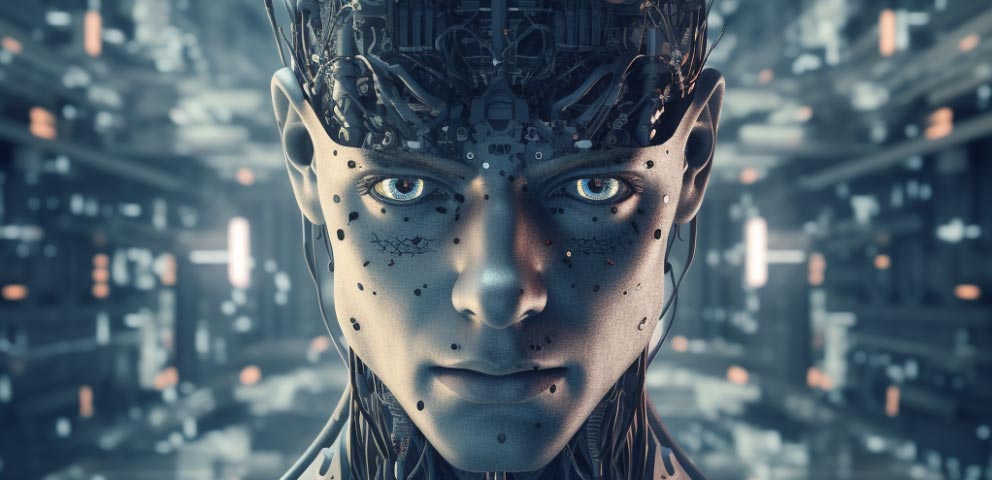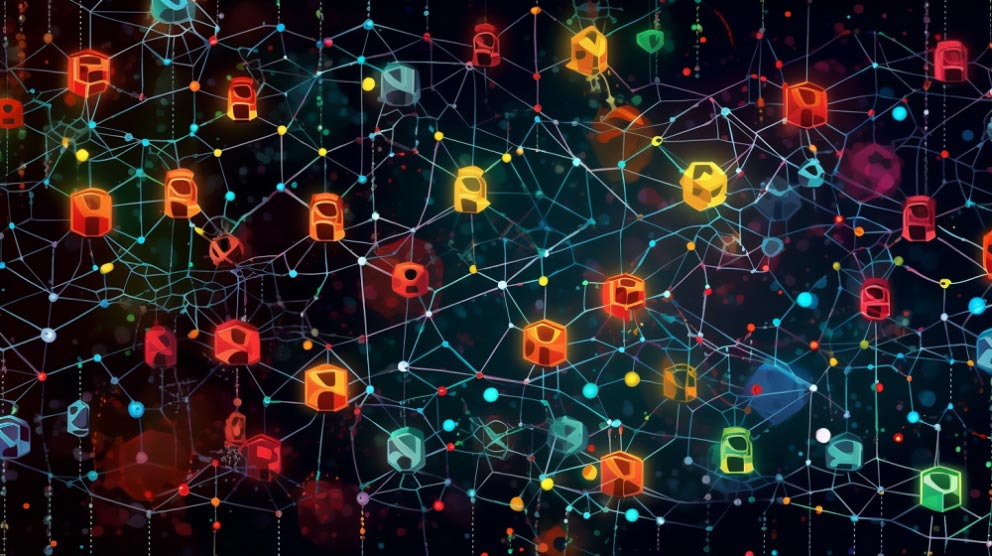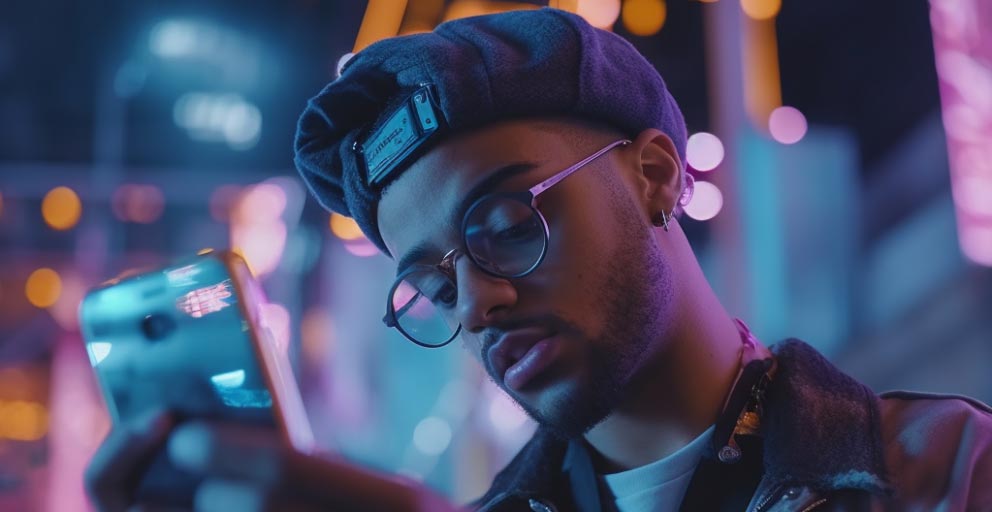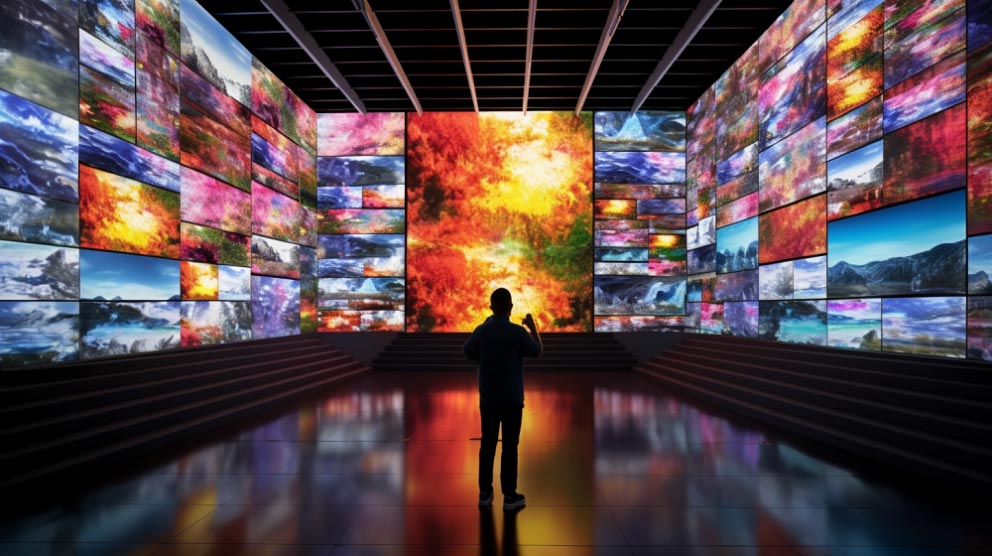
By: Patrick Sauriol May 26/2023
If you had a crystal ball back in the year 2006 and asked it to show what the world would be like today in 2023, what advancements would hit you the hardest? Seventeen years ago there weren’t any smartphones, so seeing nearly everyone using a mobile computer that has real-time video call signal sending, high resolution camera tech, and capable of playing feature length movies from its onboard memory, you would probably be speechless.
So where might the world be seventeen years from today in 2040? What advancements in technology would impact business and marketing? That’s what I’ve been thinking about, and I would like to take a stab at imagining what the digital marketing agency of 2040 would look like.

This is the big current trend that I think most people see as having a great impact very soon in our lives.
With the way that marketing automation has advanced in the past two decades, I think AI will play a crucial role in various aspects of future digital marketing. Advanced AI algorithms will automate tasks such as data analysis, customer segmentation, and campaign optimization, making it easier for marketing managers to have data up to the second on their campaigns. AI-powered chatbots and virtual assistants will handle customer interactions, and also better mimic the voice of the company, freeing up human marketers for more strategic high-level work.
I believe that customer service is going to go back to what I remember it being like 50 years ago, with human beings giving a human touch to their customer interactions. You’re going to be chatting to AI bots in real-time, and they are going to sound just like a real human being. No more call waiting, no more pressing half-a-dozen buttons so the call centre knows what your problem is. Website and social media channels will have AI bots giving you personalized attention.
In some ways this form of future AI integration will look more like the one-on-one personal touch customers enjoyed in the mid-20th century. Retro customer support will be the future.

With the increasing availability of data and advancements in AI, digital marketing agencies in 2040 will deliver highly personalized experiences to individual customers. I spoke about this several blog posts ago with shadow user experience (ShUX), where a website can change its design and user experience depending on how the site visitor interacts with it.
The websites of 2040 will be built to take the vast amounts of analytical data they capture and integrate it real-time into the front-end experience. They will understand customer preferences, behaviors, and needs far better than today’s websites. Future websites and their related forms of digital marketing (social, email, video, etc) will allow for tailored marketing strategies across multiple channels. And, these different channels of digital marketing will be integrated with each other in subtle but effectively powerful ways.

Depending upon how fast the vision of the metaverse happens, virtual and augmented reality technologies will become integral to digital marketing campaigns at some point in our futures. Remember the Apple Newton was introduced back in the 1990s but the technology wasn’t there yet to appeal to people; it took another 15 years of invention before the iPad succeeded where the Newton failed.
As the AI bots and integrated marketing campaigns do the dull work, the marketers at digital agencies will design the immersive experiences that customers will interact with, shopping for products and brands in virtual environments. Virtual showrooms, product demonstrations, and augmented reality ads will enhance the customer journey. If Netflix is still around in 2040, you may supplement watching a program by interacting with VR/AR content related to it, just as web content exists today.

Blockchain technology will likely be more prevalent and mainstream. The promise of blockchain is to give enhanced transparency and security in a digital marketing ecosystem. As more traditional advertisers, publishers, and consumers start integrating blockchain transactions into their ecommerce procedures, trust in the blockchain data and metrics involved in marketing campaigns will also expand. Smart contracts will facilitate transparent and efficient transactions between parties, reducing fraud and increasing accountability. By 2040 banks might even be onboard with blockchain tech.

Voice search and visual search will continue to gain in popularity as children born in the 2020s grow up using the web with these tools. Typing queries into a search engine might seem as outdated as the time when people needed to stand up and switch the channels on a television set’s dial.
The digital marketing agencies of 2040 will optimize content and advertising for voice assistants and visual search engines. Agencies will have strategies to ensure their clients’ brands appear prominently in voice and visual search results, just as today SEO and paid media buying places companies at the top of the first page of results.

Influencer marketing will continue to evolve. New social media platforms and technologies will incorporate VR, AR, AI and LL (large learning) programs. Agencies will work with virtual influencers, powered by AI, who will engage with audiences and promote products. A plumbing company whose mascot is a Disney-cute plunger might invest in AI software that makes their mascot the actual spokesperson for their company on the phone and on their website.
On the flip side, these future digital agencies will focus on identifying micro-influencers with highly engaged niche audiences for more targeted marketing campaigns. Using software that can sort through hundreds of billions of posts on millions of social channels, key real-life micro-influencers can be identified, reached out to, engaged in negotiations as brand ambassadors, and a deal reached and closed by the agency’s AI software by the time a real human checks their work email.

As privacy concerns grow, digital marketing agencies must prioritize ethical data collection and usage. The evolution in having stricter regulations will slowly come in place, requiring agencies to obtain explicit consent from consumers for data collection. Privacy-enhancing technologies will be implemented to safeguard sensitive information. Blockchain adoption will help ease fears of misuse or leaked personal information. There will be bumps along the way as global (and SMB) companies have their data breached before improving their security. This is already happening now. Cyber security will transform from a $190 billion/year industry to a $650 billion/yr industry by 2030. No one can even guess what the number will be in 2040.

Digital marketing agencies will continue to integrate marketing efforts across various channels, including social media, search engines, mobile apps, connected devices, and emerging platforms. Old media such as terrestrial broadcasting content may need to evolve and incorporate their content creation strategy into the accelerated digital channels. For example, imagine tuning in to watch the local six-o-clock news in 2040 and the newscaster is an AI constructed host. The evening’s top stories will be generated from topics that you have expressed interest in before, or by popularity via algorithm. This already happens today in your social media feeds.

Given the rapid pace of technological advancements, digital marketers in 2040 will need to be lifelong learners. Agencies will prioritize upskilling and reskilling their workforce to stay updated with the latest tools, trends, and strategies. Learning institutions may need to throw out their curriculum every five years. Teachers may even be replaced by AI so the rapid pace of digital marketing trends is kept up-to-speed for paying students.

As technology integrates and begins to be seamless between all its forms, sustainability and social responsibility will be core values at the heart of digital marketing agencies. Brands will seek agencies that align with their values and focus on culturally friendly practices such as environmentalism (where does the energy come from that powers the agencies’ computers?), diversity (workers from a wide aspect of background, genders, ages), and perhaps even ideologies (conservative, liberal, anarchistic). The digital agency of tomorrow will need to be far more tolerant and appreciative of the wider spectrum of today’s business owners and shoppers.
Keep in mind that all of my predictions are based in the present. Some new unknown factor can come in to disrupt my extrapolations. Still, look at a few of these commercials for AT&T that first aired in the mid-1980s for how predictions about the future can turn out to be very close to where we are right now.